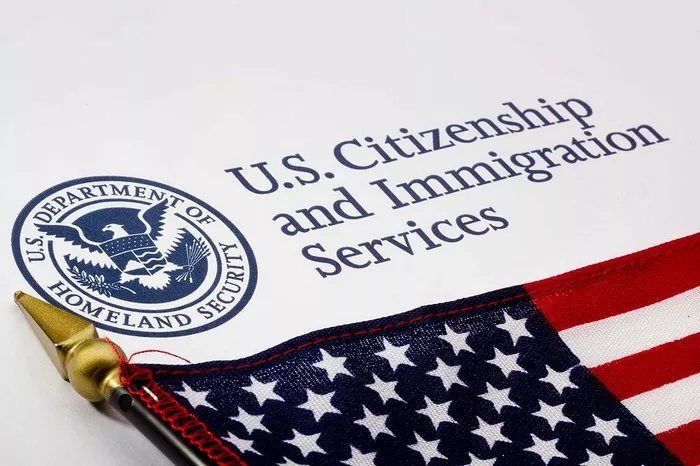In the realm of U.S. immigration, Form I-539 is a crucial document used for various purposes, primarily to request a change or extension of nonimmigrant status. Whether an individual is seeking to extend their stay, change their status to another nonimmigrant category, or adjust to a dependent status, the I-539 plays a pivotal role in facilitating these transitions. However, the process is not always straightforward, and there exists the possibility of a denial, which can have significant implications for the applicant. This article aims to explore in detail what happens if Form I-539 is denied, including the reasons for denial, potential consequences, and options available to the applicant post-denial.
Understanding Form I-539 and Common Reasons for Denial
Form I-539, officially titled “Application to Extend/Change Nonimmigrant Status,” is filed with the U.S. Citizenship and Immigration Services (USCIS). It is used by nonimmigrants in the United States to extend their stay, change to another nonimmigrant status, or change to dependent status (e.g., from F-1 student to F-2 dependent).
The USCIS adjudicates each I-539 application based on specific criteria and eligibility requirements. Common reasons for denial include:
Incomplete Documentation: Failure to submit required documents or evidence to support the application.
Ineligibility for the Requested Status: The applicant may not meet the qualifications or requirements for the particular nonimmigrant status being sought.
Failure to Maintain Status: If the applicant has violated the terms of their current nonimmigrant status, such as by unauthorized employment or overstaying the authorized period.
Discretionary Factors: USCIS officers have discretionary authority to deny applications based on various factors, including past immigration violations, criminal history, or fraud.
Insufficient Funds: In cases where financial support or evidence of means to support oneself in the United States is inadequate.
Understanding these reasons is crucial as they directly impact the likelihood of approval or denial of an I-539 application. Each denial is accompanied by a detailed explanation from USCIS outlining the specific reasons for the decision.
Consequences of a Denied I-539 Application
The denial of an I-539 application can have serious implications for the applicant, depending on their individual circumstances and the reasons for the denial:
Status Expiration and Overstay: If an application to extend nonimmigrant status is denied and the applicant’s current status has expired, they may immediately fall out of legal status. This can lead to accruing unlawful presence in the United States, which may have long-term consequences for future immigration benefits or even trigger bars to re-entry.
Authorized Stay vs. Unlawful Presence: Understanding the distinction between authorized stay (when an application is pending) and unlawful presence (after denial or expiration) is crucial. Unlawful presence can result in bars to re-entry to the United States if the individual departs after accruing a certain period of unlawful presence.
Impact on Employment Authorization: Many nonimmigrant statuses allow for work authorization. A denial can invalidate an existing Employment Authorization Document (EAD) if the underlying status is no longer valid, thereby affecting the ability to legally work in the U.S.
Loss of Benefits and Rights: Certain benefits tied to nonimmigrant status, such as healthcare eligibility or eligibility for certain educational programs, may be affected by a denial and subsequent loss of status.
Reconsideration and Appeal Options: Depending on the circumstances of the denial, applicants may have options for reconsideration or appeal. These processes vary depending on the type of application and the reasons for denial, and they often have strict deadlines and requirements.
SEE ALSO: AN ULTIMATE GUIDE TO FORM I-130: PETITION FOR ALIEN RELATIVE
Options After an I-539 Denial
Despite the complexities and potential consequences of an I-539 denial, applicants typically have several options available to them:
Reapplying: In some cases, applicants can address the issues that led to the denial and reapply for the desired status. This may involve providing additional documentation, correcting errors, or demonstrating changed circumstances.
Motion to Reopen or Reconsider: If the denial was based on incorrect facts or a misunderstanding of the law, applicants can file a motion to reopen or reconsider with USCIS. This process requires presenting new evidence or legal arguments that were not previously considered.
Appeal: In certain circumstances, applicants may have the option to appeal the denial to the USCIS Administrative Appeals Office (AAO). Appeals must generally be based on legal grounds and cannot simply reargue the facts of the case.
Departure from the United States: If an applicant’s legal status has expired and there are no viable options for reapplying, appealing, or reopening the case, departure from the United States may be necessary to avoid accruing unlawful presence and potential bars to re-entry.
Seeking Alternative Options: Depending on individual circumstances, there may be alternative immigration pathways or statuses that an applicant can explore to remain lawfully in the United States.
Conclusion
Navigating the complexities of U.S. immigration law, particularly concerning Form I-539 applications, requires meticulous attention to detail and compliance with stringent requirements. A denial of an I-539 application can have profound implications for an individual’s legal status, rights, and future immigration prospects in the United States. Understanding the reasons for denial, potential consequences, and available options for recourse is essential for anyone facing such a situation. By being informed and proactive, applicants can better navigate the immigration process and work towards achieving their desired immigration goals within the bounds of the law.


